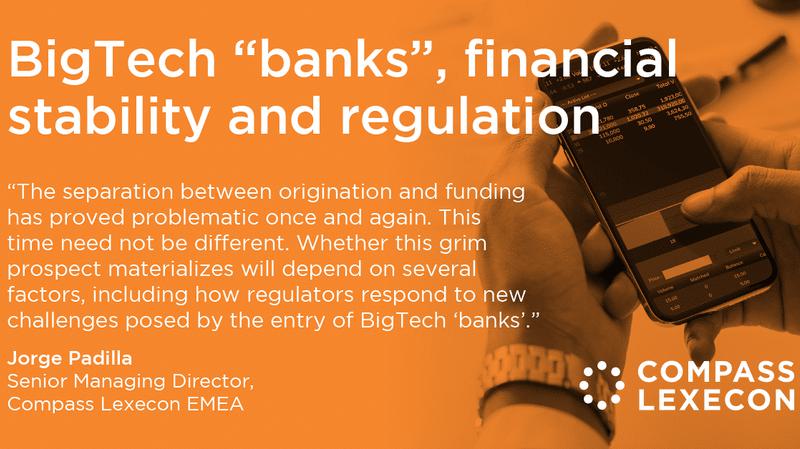Expert Opinion: The Pros and Cons of Big Tech Banking

Share
The entry of Big Tech players, such as Google, Facebook, and Amazon, into online banking is likely to have a significant impact on competition in retail banking. These platforms have many advantages over traditional banks, that can provide them with a competitive edge. Consumers may benefit through better functionality and quality, as well as from innovative financial products and services.
However, within a few years, Big Tech companies may succeed in monopolizing the origination and distribution of loans to consumers and SMEs, forcing traditional banks to become “low-cost manufacturers”, which merely fund the loans intermediated by the Big Techs. This may harm competition, reduce consumer welfare and bring about an increase in financial instability. It is in society’s interest that traditional banks find a way to compete with their digital-based competitors.
In this Expert Opinion, Miguel de la Mano and Jorge Padilla discuss the need for competition authorities to ensure that borrowers are not systematically “steered” towards the Big Tech proprietary services, especially if those services are more expensive and lower quality. Competition law may not be able to address the risk of monopolization on its own, so the authors also highlight the need for banking regulators to find a framework that would close the “regulatory gap” between incumbents and Big Tech entrants without stifling beneficial innovation.
This research was originally published in the Journal of Competition Law and Economics, April 2019: read the full paper. The paper has also been summarized on the FinReg Blog.
Jorge Padilla was interviewed on the topic of big tech banking for the Competition Lore podcast by Caron Beaton-Wells of the Australian Competition Tribunal. Listen to the podcast (44 mins)


